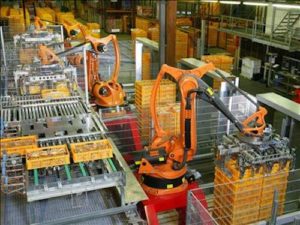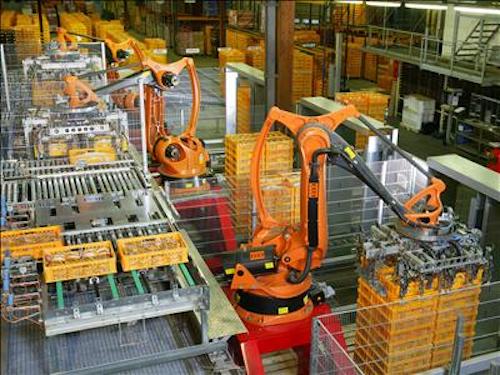Lack of skilled workforce is considered as one of the biggest challenges in process automation.

The implementation of Robotic Process Automation (RPA) in companies can help reduce offshore and onshore operations cost by more than 25 per cent and improve the revenue by 30–60 per cent, says market research consulting firm IndustryArc.
Process automation market involves the combined usage of technology and products such as sensors, tachometers and many others which facilitate the automation of tasks or processes in a business with minimal manual efforts.
According to the IndustryArc, the main aim of process automation is to achieve cost minimization, greater efficiency and streamlined processes. By implementing automated processes in the workplace, it says, organizations can save time and ensure best practices are implemented to improve the overall operational efficiency.
Automation companies increasing investments in R&D
A robotic process automation startup, named Automation Anywhere, has announced the investment of $300m to introduce the advanced RPA with bot. This investment makes it one of the world’s fastest growing companies.
Along with the increasing investments, automation companies are also planning to develop a new application, which will be built and deployed through API, microservices and containerization. These approaches are expected to make the applications more scalable and reduce the deployment time.
In future, the APIs are anticipated to play a crucial role in the European region, where regulatory measures such as payment services directive (PSD) and other open banking services in financial institutions are expected to increase the investments on these technologies.
Challenges in process automation
Lack of skilled workforce is considered as one of the biggest challenges in process automation. The implementation of process automation in any company needs appropriate and well-versed employees who can understand and solve the issue in the company.
Having a well-staffed and knowledgeable team on hand to help with the automation issues is one of the ways to expedite the implementation process. To overcome this challenge, companies are planning to train the employees, which is expected to increase the skilled workforce.
Implementation of RPA can help boost the revenue of a company, but at the same time increase the expenses to more than five times the normal expense. This is because to implement RPA, companies have to redesign the process and redesigning the process will cost money.
In addition, the company has to bear the training expenses of the employees. This is expected to increase the operational cost for the company in the first three years.
Process automation has been penetrating into various end user industries due to the features such as safety, reliability and increased production rate. The implementation of various new techniques and invention of millimeter and sub-millimeter instruments are expected to boost the productivity to the next level.










